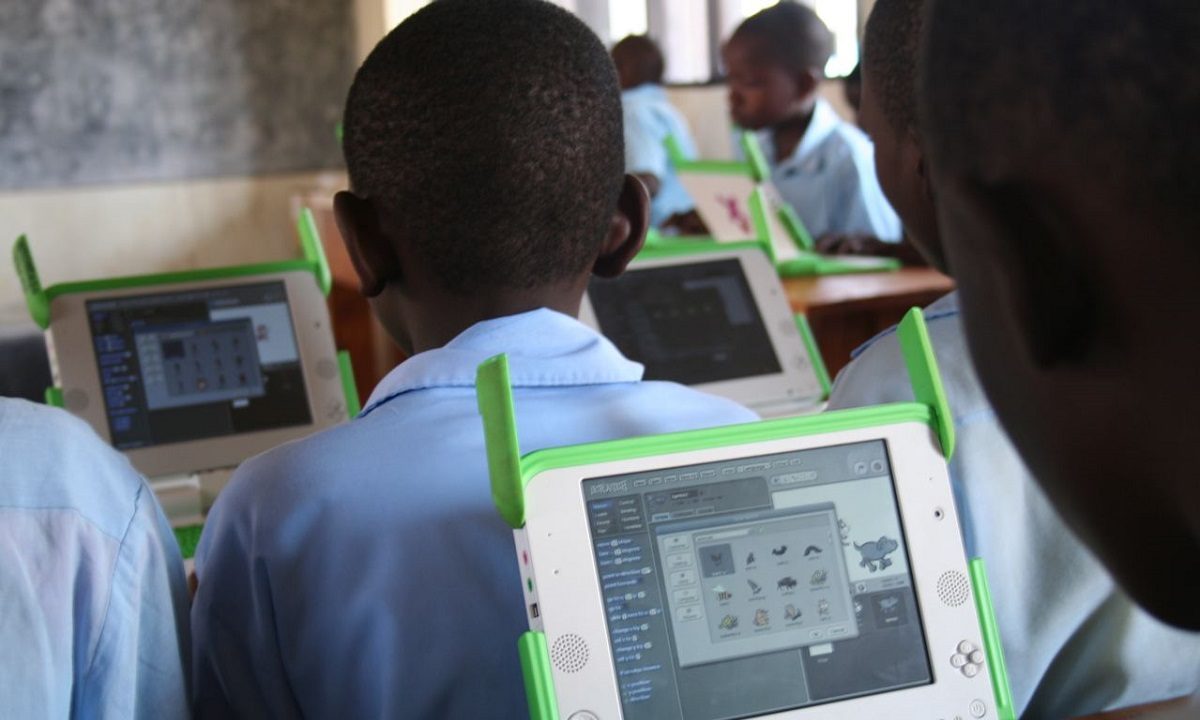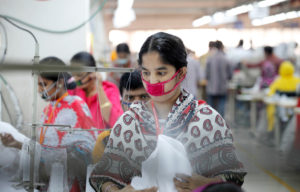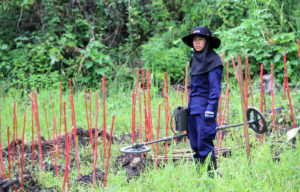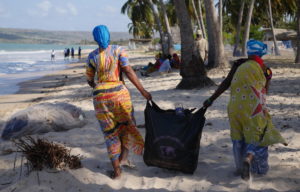
CCBY One Laptop Per Child
Analysis: The world is getting smarter online
E-learning has changed from being an exclusive, high-tech learning method to becoming a worldwide success with online quality products free of charge. The potential is enormous - not least for developing countries.
Share
In the Danish public debate on schools, there is often a focus on children, youngsters and the increasing tendency to have their eyes glued to a smartphone or tablet in the classroom. Even though tablets are often included in teaching, the small screens also mean distractions and concentration difficulties. But the potential of e-learning, driven by increased internet access and cheaper smartphones and tablets all over the world, exceeds these challenges by far. Especially if you live in a developing country.
From Harvard to Duolingo
Just 10-15 years ago, digital and online learning was still a niche of limited scope and success. Since then, the development of software has made digital learning tools both interactive and entertaining. Online education has entered into a new phase and today, even one of the world’s most prestigious universities, Harvard University, offers a wide range of online courses – some of them for free. According to the university, they wish to make knowledge and learning accessible to everyone, including those who do not have the opportunity to get an education from Harvard. If you are a language enthusiast, you might also know Duolingo, which has gained great popularity since its launch in 2012 with its game-like structure that combines learning and playing. At the time of writing, Duolingo offers courses in 23 different languages - with even more under development – and has about 150 million registered users worldwide. Another example of how digitalization has democratized our access to knowledge is the user-driven encyclopaedia Wikipedia, which currently contains articles on almost 5.5 million subjects in the English version.
“For anyone, anywhere”
One of the pioneers in modern e-learning is Salman Khan, who used to study at Harvard University. Ten years ago, he tutored one of his younger cousins in maths through e-mail – and as more and more of his cousins began asking him for help, Khan started recording small videos for YouTube, which e.g. explained mathematical formulas. This was the beginning of the international non-profit education organization Khan Academy, which, with the support of the Gates Foundation, offers “a free world-class education for anyone, anywhere”. Today, the Khan Academy offers online education from kindergarten to university level – ranging from maths to art history. It has also been translated into Danish with support from LøkkeFonden.
Basic opportunities are not enough
Neither Khan Academy nor Harvard’s online courses have been developed for developing countries as such. But their rapid dissemination shows a huge potential, especially when looking at less wealthy countries. Global illiteracy has already dropped sharply in recent decades, and especially Africa and South Asia have been doing well. On the African continent, it is often less than 50 percent of the generations above the age of 65, who are able to read. But for the younger people between the age of 15 and 24, reading skills are better, especially in northern and southern Africa, where between 70 to 100 percent of the young generations are able to read and write. The same high level of reading skills among the youth today applies to all other continents in the world, although there are major local differences. But one thing is to be able to read and write – something else is the ability to add specific, much needed skills. According to the UN, 9 out of every 10 children today attend primary school. This is an important change in a positive direction, but in many of the poorest countries in the world, the challenge is now to offer education of sufficiently high quality.
A software revolution
According to Jeffrey Sachs, professor and expert on sustainable development from Columbia University, equal access to quality education for everyone is the most important of the 17 Global Goals adopted by the UN in 2015. And he is not alone with his opinion. Goal 4, Quality Education, is also the most popular among the nearly ten million people who voted in the UN’s online poll “MyWorld”, where all people were invited to choose which Global Goal were the most important for them and their family. Gates Foundation has estimated that the development of new software will revolutionize learning and education in the world’s poorest countries. According to the association of cell phone operators, GSMA, the number of internet users through cell phones in Africa tripled from 2010 to 2015, where 300 million were online on cell phones. The expectation is that the number of smartphones by 2020 will be more than 720 million. Today, more than one billion people live in Africa, and the distribution of smartphones between them is far from equal – so yes, there are still some steps to take, before every African child has access to online Harvard courses through their smartphone. But today, more than ever, it is possible to get smarter via free, online quality education – end the development is running wild.







